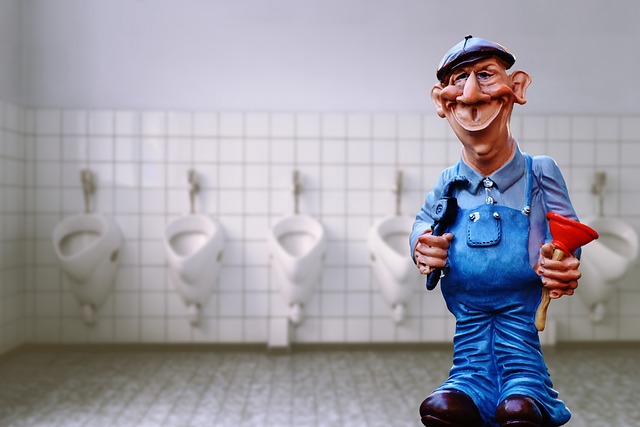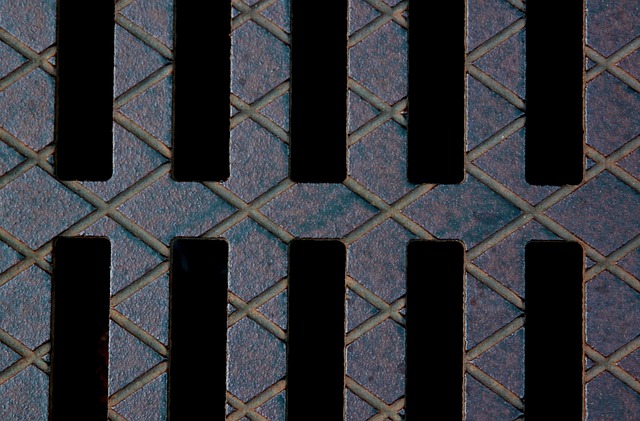Recognize Signs of a Clogged Drain like slow drainage, unusual water pooling, sewage odors, and gurgling sounds to prevent severe clogs. Address common causes such as wet wipes, hair, grease, tree roots, hard water deposits promptly. If DIY methods fail or issues persist, call professional plumbers to avoid broken pipes, root intrusion, structural damage, flooding, and water damage. Regular maintenance ensures optimal plumbing conditions and prevents health hazards associated with standing water.
Are you tired of dealing with sluggish drains and nauseating smells? Learn to recognize the early signs of a clogged drain before it turns into a plumbing disaster. This article equips you with knowledge on identifying slow drains, unmasking common culprits, and knowing when to call in professional help. By understanding the signs of a clogged drain, you’ll prevent costly damage and maintain a hygienic living environment.
- Identifying Slow Drains: The Early Warning Signs
- Unmasking the Culprits: Common Causes of Clogs
- When to Call in the Experts: Preventing Disaster
Identifying Slow Drains: The Early Warning Signs

If your sink or shower drain is taking longer than usual to clear, it could be an early warning sign of a clog. Pay attention to any noticeable slowdowns in drainage—water that takes an unusually long time to flow away or pools up on the surface rather than draining promptly—as these are key signs of a potential blockage.
Other telltale signs of a clogged drain include peculiar smells, such as a sudden onset of a sewage-like odor coming from your pipes. This is often an indication that waste is building up and backing up through the pipes, creating a breeding ground for harmful bacteria and causing unpleasant odors. Additionally, if you hear gurgling sounds or water spouting back up into the sink or shower, it’s clear your drain is struggling to clear, signaling the need for immediate action to prevent more severe clogs.
Unmasking the Culprits: Common Causes of Clogs

Unmasking the Culprits: Common Causes of Clogs
One of the most common signs of a clogged drain is a slow drain, but there are numerous other indicators that can signal a potential problem before it becomes a disaster. Bad smells, such as a distinct sewer odor, often accompany clogs and can be an early warning sign. These malodors arise when decaying organic matter, like food scraps or grease, accumulates in the pipes. Another subtle clue is unusual water pressure changes, which may indicate that something is blocking the flow of water through the drain.
Common causes of clogs include disposable items improperly disposed of (e.g., wet wipes, sanitary products, coffee grounds), hair and other debris from bathrooms, grease buildup from kitchens, tree roots intruding into pipes, and even hard water deposits over time. Understanding these typical culprits can help homeowners and tenants proactively address potential drain issues before they escalate, ensuring smooth plumbing operations in their homes or businesses.
When to Call in the Experts: Preventing Disaster

If you’ve tried the above methods and still can’t unclog your drain, it’s time to call in the experts. Repeated or persistent clogs could be a sign of more serious issues like broken pipes, root intrusion, or structural damage. Ignoring these signs can lead to further complications, such as flooding, water damage, and even health hazards from standing water and harmful bacteria.
Regular maintenance and prompt attention to initial signs of a clogged drain, like slower drainage or unusual smells, can prevent these disasters. While DIY methods are helpful for minor clogs, they may not address the root cause. Experts have the tools, knowledge, and experience to diagnose and fix complex issues beneath the surface, ensuring your plumbing system remains in top condition.
Regularly checking for signs of a clogged drain, such as slow drains and unusual smells, can help you prevent unexpected disasters. By understanding common causes like hair, grease, and foreign objects, you can take proactive measures to clear obstructions. If the issue persists or worsens, it’s crucial to know when to call in professional help to avoid severe damage. Equip yourself with these insights, and you’ll be well on your way to maintaining a smooth-flowing home.
